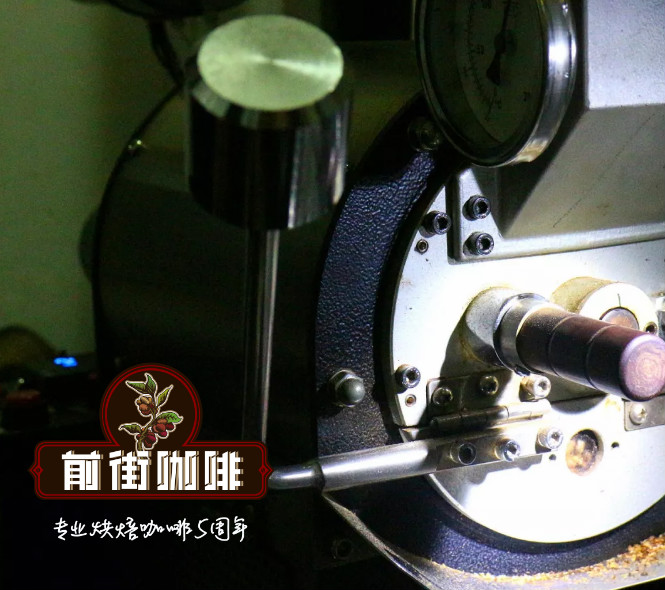Peru: the flavor of organic coffee is characterized by high quality balance and palatable acidity. Peruvian Coffee History

Professional coffee knowledge exchange more coffee bean information please follow the coffee workshop (Wechat official account cafe_style)
98% of Peruvian coffee is grown in the jungle at the foot of the Andes. Peruvian coffee was not favored by the international market at first because of the volatile political and economic situation and the fact that Peruvian coffee industry was once a small-scale peasant economy. With the price of coffee skyrocketing in neighboring Colombia, people gradually turn their attention to the secret beast. Coffee cultivation in Peru began in the early 18th century, and the country still retains many traditional tree species, which produce 60% of coffee beans exported.
Coffee beans from Chasimayo in the middle and Cusco in the south are the most famous varieties of Peruvian coffee beans. Peruvian coffee trees are mostly planted at high elevations, and some even grow at 2000 meters above sea level. This topographic condition gives Peruvian coffee a unique flavor: the sunny style of Takahara, fresh acidity on the palate, soft and round sweetness, and a medium mellowness that gives you a warm and unburdened taste.
In addition, special-colored organic coffee is produced in some areas of northern Peru, using coffee beans grown in the shade of trees. This kind of coffee beans planted in the shade are not good in yield but excellent in quality. Growing under the sprouting of the tree, the maturation rate of the coffee tree slows down, the coffee bean grows fully, contains more natural ingredients, and the caffeine content is low. Peruvian coffee has always been used as a comprehensive coffee, stable mellow mixed beans, rich acidity and mellow smoothness are its most prominent features.
Peruvian coffee has a soft sour taste, medium texture, good taste and aroma, and is an indispensable ingredient in the production of comprehensive coffee. Peruvian coffee of outstanding quality has a strong aroma, smooth, layered, rich and sweet, with elegant and mild sour taste.
Peru: organic coffee
Flavor and taste characteristics: high quality and balanced, palatable acidity, can be used for mixed drinks,
END
Important Notice :
前街咖啡 FrontStreet Coffee has moved to new addredd:
FrontStreet Coffee Address: 315,Donghua East Road,GuangZhou
Tel:020 38364473
- Prev

Peruvian coffee beans have a round taste, moderate mellow, not thick, not light and mild acid is a major feature.
Professional coffee knowledge exchange more coffee bean information please pay attention to the coffee workshop (Wechat official account cafe_style) Peruvian coffee is gradually opening up its popularity and entering the international market. Peruvian coffee has always been used as one of the stable and mellow mixed beans of comprehensive coffee. Peruvian coffee has a mellow taste and proper acidity. This lukewarm coffee attitude has made more and more people
- Next

Wild Rose-Harald Coffee has a strong wine flavor, and some are fragrant.
Professional coffee knowledge exchange more coffee bean information please follow Coffee Workshop (Wechat official account cafe_style) Harald Coffee is a very special kind of coffee, its taste is very aggressive, ready to defeat your taste buds, a cup of Ethiopian Harald Coffee can bring you the original experience you have never had before. Harald is an ancient city with a long history.
Related
- Detailed explanation of Jadeite planting Land in Panamanian Jadeite Manor introduction to the grading system of Jadeite competitive bidding, Red bid, Green bid and Rose Summer
- Story of Coffee planting in Brenka region of Costa Rica Stonehenge Manor anaerobic heavy honey treatment of flavor mouth
- What's on the barrel of Blue Mountain Coffee beans?
- Can American coffee also pull flowers? How to use hot American style to pull out a good-looking pattern?
- Can you make a cold extract with coffee beans? What is the right proportion for cold-extracted coffee formula?
- Indonesian PWN Gold Mandrine Coffee Origin Features Flavor How to Chong? Mandolin coffee is American.
- A brief introduction to the flavor characteristics of Brazilian yellow bourbon coffee beans
- What is the effect of different water quality on the flavor of cold-extracted coffee? What kind of water is best for brewing coffee?
- Why do you think of Rose Summer whenever you mention Panamanian coffee?
- Introduction to the characteristics of authentic blue mountain coffee bean producing areas? What is the CIB Coffee Authority in Jamaica?

